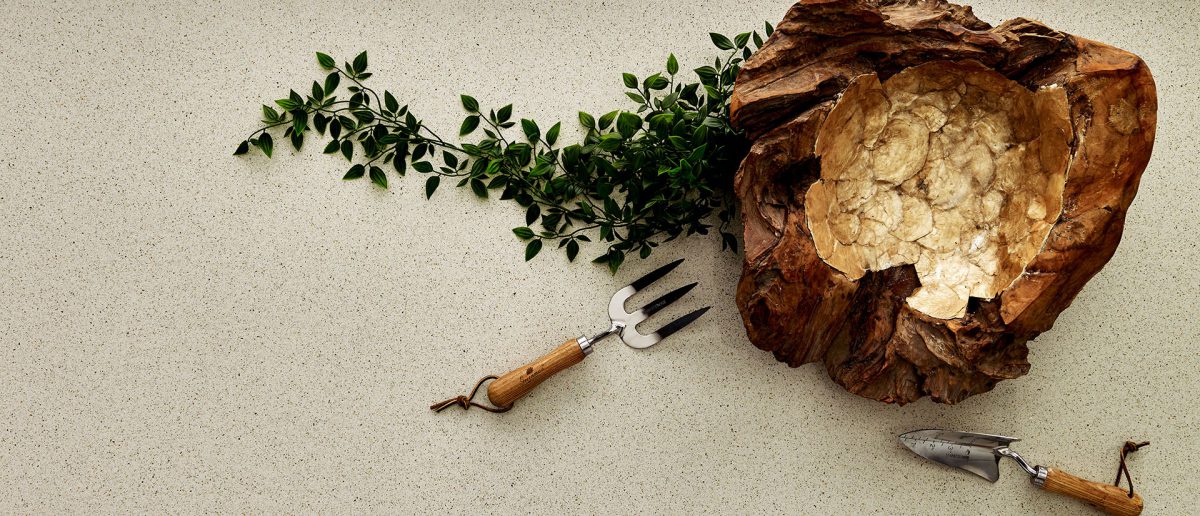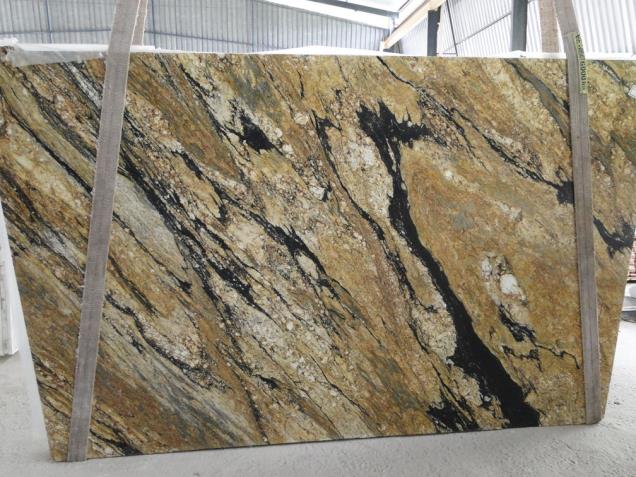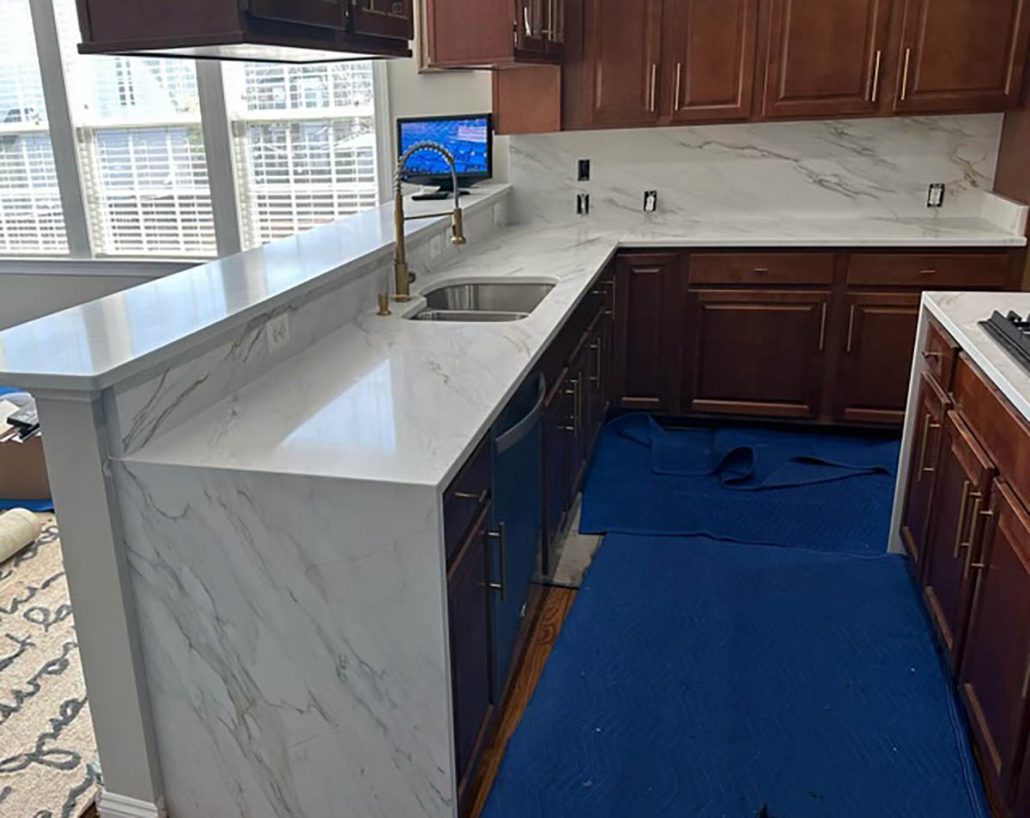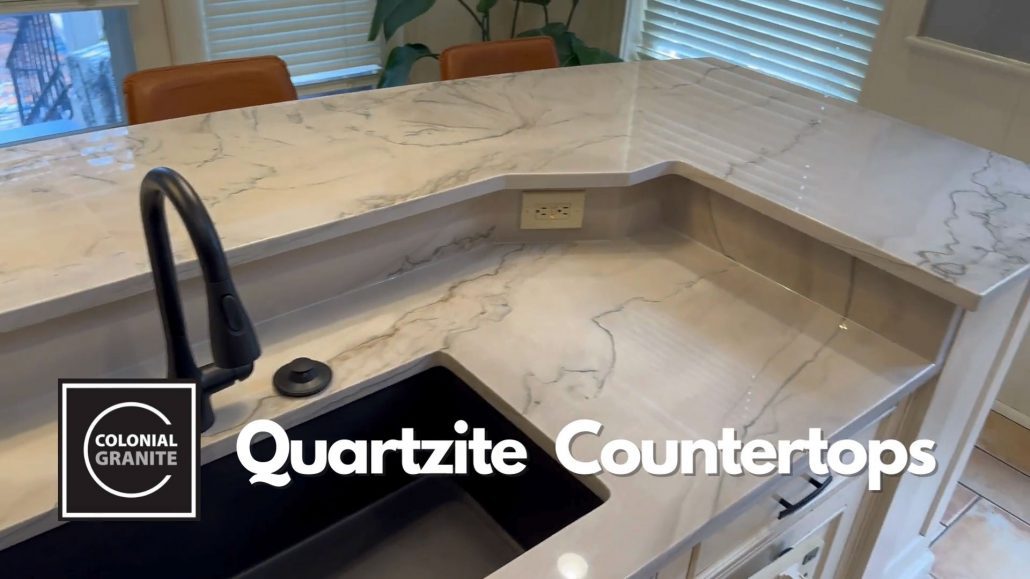Choosing the right countertop stone is key to achieving a balance of beauty, functionality, and durability.
Here’s an overview of some popular countertop materials, along with their unique features, pros, and cons, to help you determine which is best for your project.
Granite countertops
- Features: Known for its natural beauty, granite offers a wide variety of colors and patterns, making each countertop unique. It’s a popular choice for those seeking both elegance and resilience.
- Pros: Granite is incredibly durable and resistant to heat, scratches, and general wear, making it ideal for high-traffic kitchens. Its natural appearance adds character and warmth to any space.
- Cons: Granite is a porous material, so it requires regular sealing to prevent staining and moisture damage. It may need occasional resealing depending on the level of use.
Quartz Countertops
- Features: Quartz is an engineered stone that combines natural quartz crystals with resin. Its non-porous surface offers a uniform look with a wide range of colors and patterns.
- Pros: Quartz is low-maintenance and does not require sealing, making it ideal for busy kitchens. It resists stains and scratches better than most natural stones.
- Cons: Unlike granite, quartz is not as heat-resistant, so it’s best to avoid placing hot pots or pans directly on the surface.
Marble Countertops
- Features: Known for its luxurious look and one-of-a-kind veining, marble has an elegant and timeless appeal, often used in high-end kitchen and bathroom designs.
- Pros: Marble offers a sophisticated appearance that’s hard to match, and its unique veining can add a striking visual element to any space.
- Cons: Marble is softer and more porous than granite or quartz, making it susceptible to scratches, stains, and acid damage from things like vinegar and citrus. It requires more maintenance and sealing to maintain its beauty.
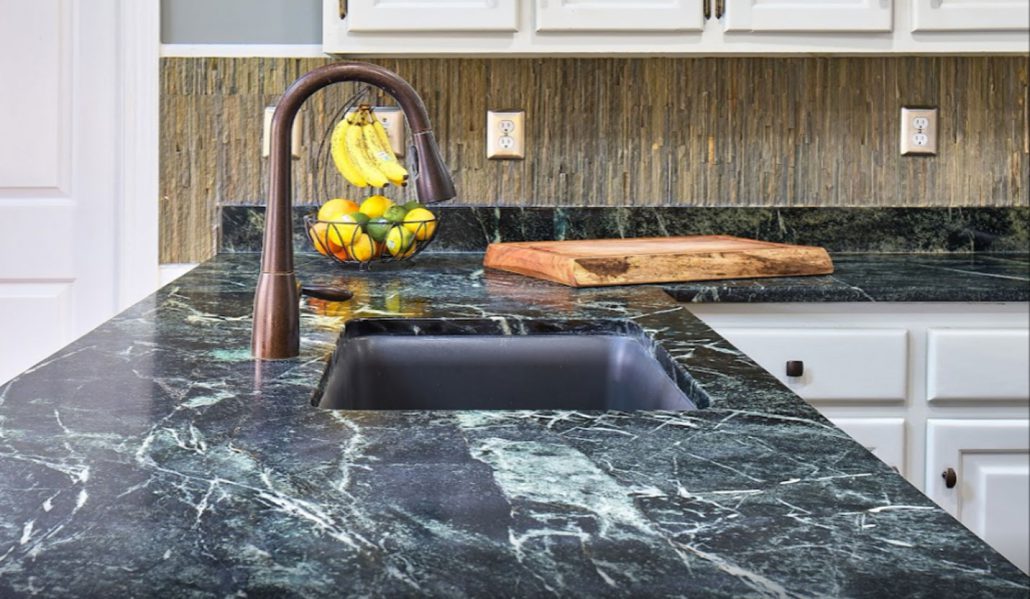 Soapstone
Soapstone
- Features: Soapstone offers a soft, matte finish and natural veining, creating a warm, rustic look. Over time, soapstone develops a natural patina that adds to its character.
- Pros: Soapstone is highly resistant to heat, making it a good choice for kitchens. Its soft appearance pairs well with farmhouse and vintage-inspired designs.
- Cons: Soapstone is softer than other stones, which makes it more prone to scratches. However, these can often be sanded out, and the patina that develops over time can minimize their visibility.
Other Options (available based on stock)
- Limestone: Limestone has a unique appearance with subtle color variations, providing a soft, warm aesthetic. It’s less durable than granite or quartz and requires frequent sealing.
- Travertine: Known for its textured surface and earthy tones, travertine is an eye-catching option, though it requires regular sealing to protect against stains and etching.
- Quartzite Countertops: Quartzite combines the look of marble with the durability of granite, making it a versatile and attractive choice. It’s resistant to heat and scratches, though some types need occasional sealing to prevent staining.
Each countertop material brings something unique to the table, from durability to aesthetic appeal. Colonial Granite’s team in Richmond can help you decide which option best fits your lifestyle, design preferences, and maintenance expectations.


